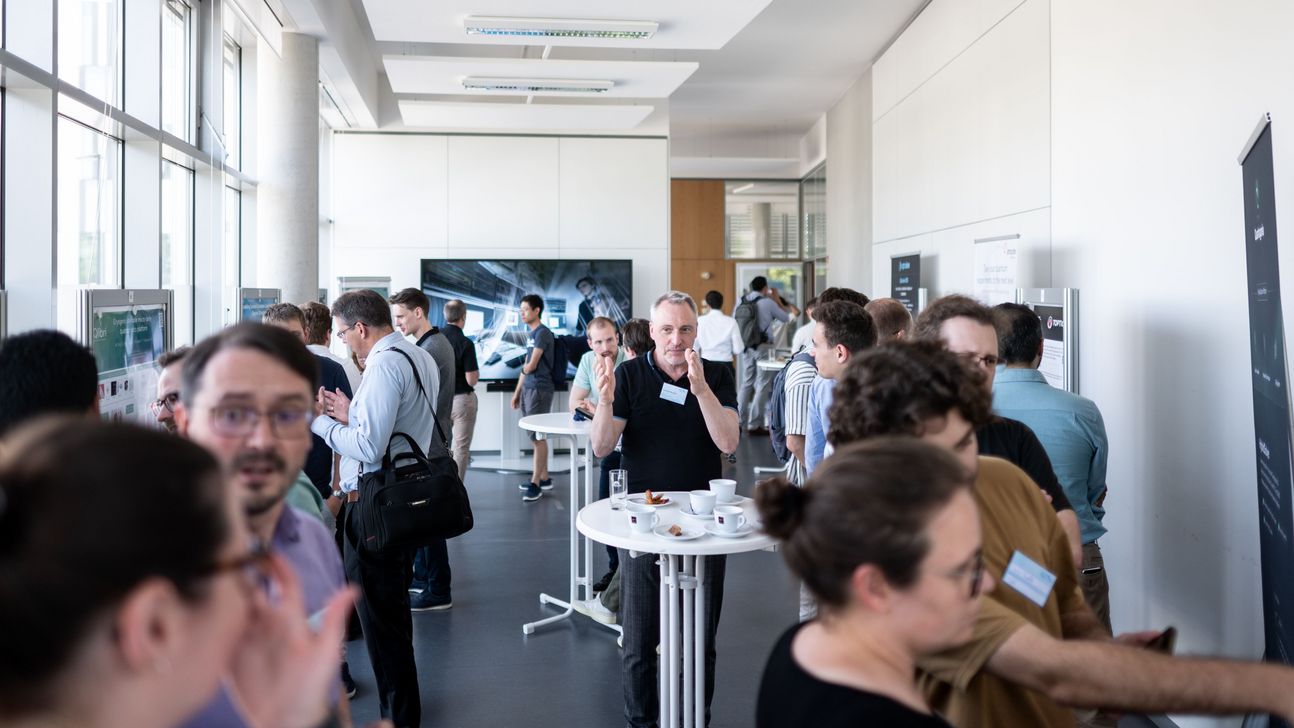The MQV Supplier Workshop, which was primarely aimed at the MQV Partner Network, highlighted the requirements and needs of both industry and science. Brief presentations were given on the three hardware platforms being researched at MQV and the requirements for scalable hardware and systems engineering. "We have many successes to show, but today I would like to focus on the challenges," said Stefan Filipp, speaker of the SQQC consortium, opening his presentation on superconducting quantum computers being developed within the MQV at the Walther Meissner Institute. Cost efficiency, reproducibility and scalability are tasks that all hardware developers have to face – input from industry is very welcome here.
In his introduction to quantum computing based on neutral atoms, Sebastian Blatt, group leader at the Max Planck Institute of Quantum Optics, explained what is currently possible in this field. However, the different time horizons – knowing today which product specifications will be in demand on the market in a few years' time – are also one of the key challenges in the networking of science and industry. Jürgen Stuhler, Vice President of Quantum Technologies at TOPTICA Photonics, summarized the differences between the two areas, but also the opportunities that can arise from close and long-term cooperation, in his presentation "Relationship between industry and science".
Finally, the industry representatives from the MQV Partner Network had the opportunity to present their company and their wishes to the researchers in concise pitches: The close exchange with the people working in the laboratories is particularly important in order to adapt product development to new scientific findings as early as possible. Conversely, industry can also drive research forward, for example by contributing to the automation of various processes in the laboratory or through targeted research funding. Excellently trained specialists in the field of quantum technologies are also in high demand and are very welcome at all the companies presenting. This insight into potential jobs was particularly interesting for the students and doctoral candidates in attendance.
The presentations provided fruitful ground for further discussions in the subsequent poster session. The opportunity to network and explore collaborations in this setting was well received by both industry representatives and scientists. "I thought it was very good to get to know the companies in the network here," says Christoph Kutter, speaker of the SHARE consortium, drawing an positive conclusion.
